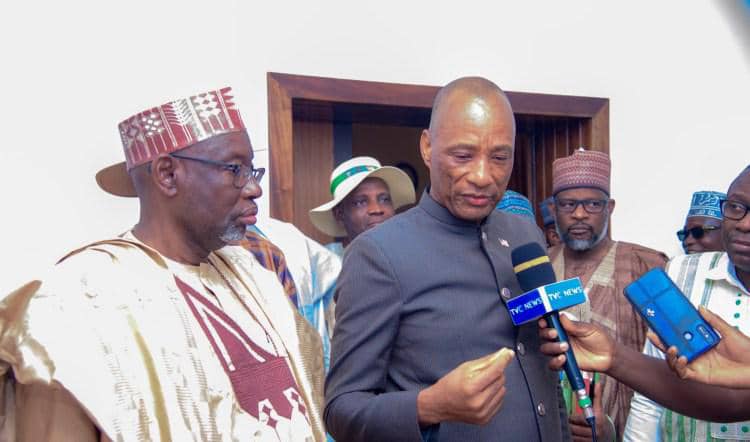
Iliyasu Abdullahi Bah
In a move to strengthen sustainable agriculture and food security, Jigawa State in northwestern Nigeria has emerged as a leader in strategic rice farming. The state plays a crucial role in meeting the rice demands of the Northwest and Northeast regions.
The Jigawa State Government has intensified efforts to boost rice farming by providing subsidized inputs and modern farming implements. In April 2024, Governor Umar Namadi announced an ambitious plan to produce 50% of Nigeria’s rice by 2030. With approximately 85% of the state population engaged in agriculture particularly rice farming.
According to BusinessDay NG, the state is expanding rice cultivation, targeting 500,000 hectares for dry season farming by 2030, with an annual production goal of 3.6 million metric tons. If achieved, this would position Jigawa to supply half of Nigeria rice demand within the next decade.
The state’s innovative techniques have attracted international interest, including Liberia Agriculture Minister, David Akoi who recently visited Jigawa to study advanced rice production methods. This collaboration highlights Jigawa’s growing influence in transforming Nigeria’s agricultural sector.
Stating “In Liberia, rice is our staple food. We eat rice in the morning, afternoon, and night. It is not just a staple food, it is a political commodity. If you ever followed the history of Liberia, in 1979, we overthrew our president, William R Tolbert, just because he attempted to increase the price of rice. That led to the ‘rice riot,’ which subsequently led to his ouster.”
“When we took over the government, we found that although we eat rice three or four times per day, we are not producing enough rice. In fact, we are importing 70% of the rice we consume. So, our government is determined to change that narrative, aiming to produce at least 70% of our consumption needs.” he added.

Murtala Sani expressed enthusiasm over Liberia’s decision to seek agricultural knowledge in Nigeria particularly Jigawa instead of turning to Western countries. “This is highly commendable,” he said. “With the government’s support and our collective efforts, we pledge to expand rice cultivation to attract more nations to Jigawa for rice production.”
Mallam Adamu Na Misau, a local rice farmer, hailed the development, stating, “It’s a great opportunity for other countries to learn from our expertise in rice farming. This is a positive step, and we welcome such collaborations.”
Commending Governor Umar Namadi’s initiatives and the visit of Liberia Agriculture Minister, David Akoi, Sadik Musa remarked, “This is truly inspiring. We are eager to achieve even more and call on the government for continued support to sustain this progress.”
The move underscores Jigawa’s growing reputation as a hub for advanced rice farming, with international recognition now paving the way for broader agricultural partnerships.
According to the FAO, agriculture remains the foundation of the Nigerian economy, providing livelihood for most Nigerians and generating millions of jobs.
With experts saying that increases in agricultural investments in developing countries are needed to combat poverty and realize food security and nutrition goals. Agricultural investment is the most important and most effective strategy for poverty reduction in rural areas, where the majority of the world’s poorest people live.
